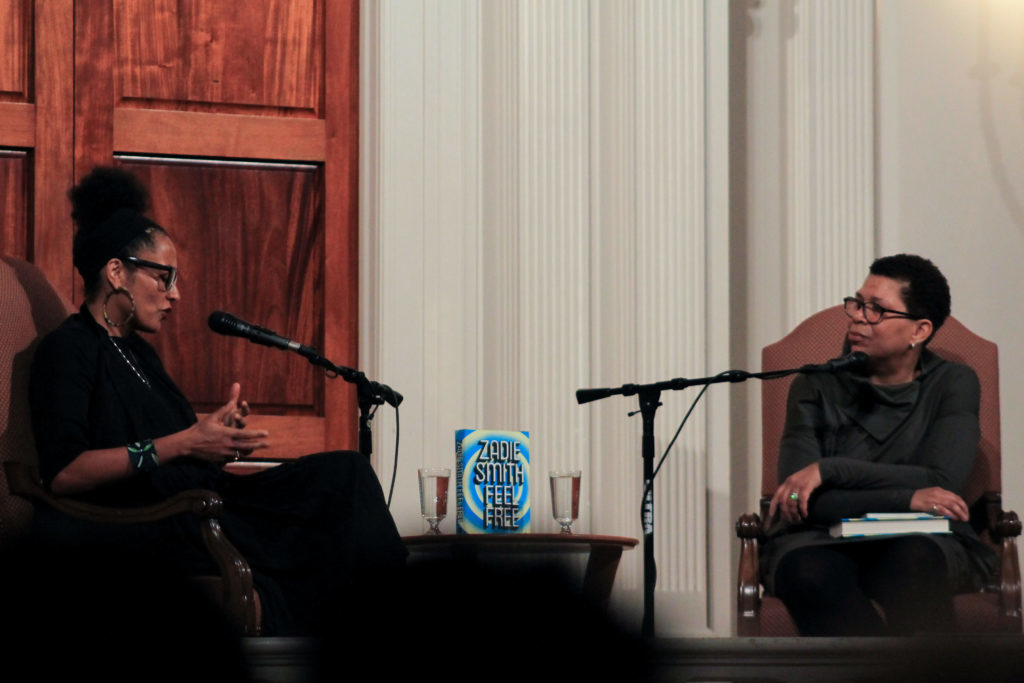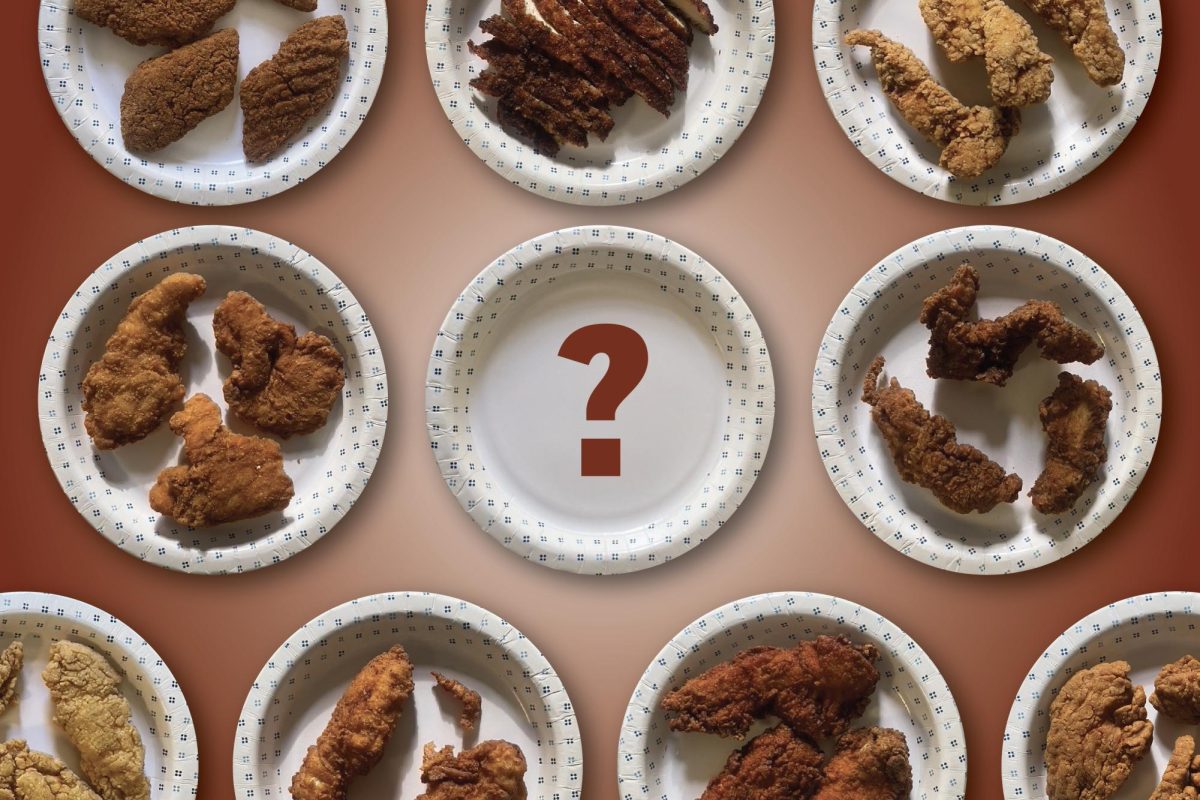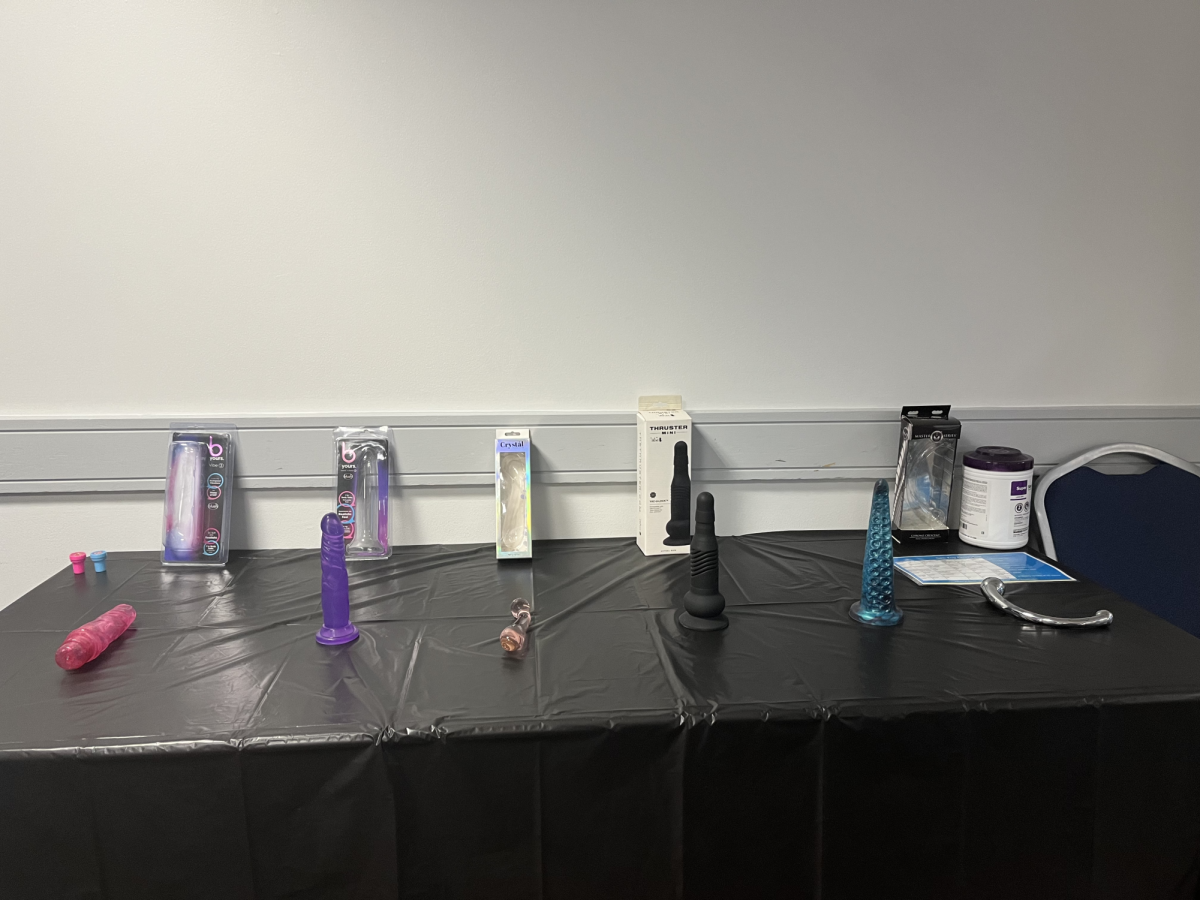For any aspiring writer, words of wisdom from Zadie Smith are worth their weight in gold.
During the author’s talk with NPR’s Michel Martin at the Sixth & I Historic Synagogue Tuesday night, benches of readers packed the room to hear about her writing process. Smith – who is famous for novels like “Swing Time” and “White Teeth” – promoted her latest essay collection “Feel Free,” which was released Feb. 6.
“It takes forever to process an idea, and so you end up feeling useless a lot of the time,” Smith said. “It’s like being a slow food movement in the world of McDonalds.”
During the hour-long conversation between the two women and an audience Q&A, Smith discussed motherhood and how lived experience determines her writing.
While she considered herself more of a reader than a writer growing up, Smith said her parents – who both dropped out of school as teens – encouraged her siblings in the arts and had a “hands-off” attitude toward her schooling. Out of her father’s other four children, two are rappers, one is a saxophonist and another paints, Smith said.
“So he didn’t get a single job,” Smith said, as the crowd erupted in laughter.
Being a mother herself, Smith said she has become acutely aware of time. This becomes especially difficult when she skirts deadlines to spend time “googling aimlessly” instead of completing her pieces. Now, she said, she only writes within her children’s school hours.
“I don’t think I’ve ever written a word on a weekend, never written anything between June and September,” she said.
Even though she deftly writes on subject matter like pop culture figures Justin Bieber and Ella Fitzgerald, Smith has an equally strong voice on issues like partisanship and climate change.
Smith said she tries to “hold opposites ideas” simultaneously in order to understand motivation for people who are on all degrees of the political spectrum. But she said the policy platform of the Republican party right now “doesn’t deserve the name conservatism.”
“One of the things that pains me is when I think about decent conservatives, which I believe in as a concept, I grew up with them, I know that they are around,” Smith said. “I don’t know where their home is now.”
Though the crowd was, in Martin’s words, “not an episode of Blackish” in terms of representation, Smith talked at length about her inspiration. She said she drew inspiration from Black painters like Toyin Ojih Odutola, whose exhibit “To Wander Determined” is about two imaginary Nigerian families of aristocrats living in an alternate world in which African diaspora never happened.
When asked by an audience member about remaining true to one’s work despite being controversial, Smith joked she is “inauthentic in all my dimensions.” But then she expressed her feelings on the complicated use of “black” as a personality marker both outside and within black communities.
By trying to think through her all of her written arguments “logically, ethically and emotionally,” Smith takes an Aristotelian approach where she just accepts that people will get upset about her work.
Despite stressing the importance of genuine relationships and learning to understand “what makes you actually feel good,” Smith said the “self-hiding” she notices in the generation of writers that follow her is confounding. She recalled her correspondence with a babysitter who was frightfully cautious with her own opinions, and who begged her afterwards to never share her personal thoughts with anyone else.
Her own disinterest for public opinion is telling in Smith’s use of a flip-phone, flying off social media’s radar. Smith avoids the criticisms inherent to the peanut gallery of Twitter so she can have a mind clear of white noise when she finally puts her pen to paper.
“So if any of you want to email me your worst thoughts,” she said. “Feel free.”




